Predictions & Data for this entry
| Model: abj | climate: MB | migrate: | phylum: |
| COMPLETE = 2.5 | ecozone: MASW | food: bjPz, jiCi, jiCvf | class: |
| MRE = 0.097 | habitat: 0jMc, jiMb | gender: D | order: |
| SMSE = 0.014 | embryo: Mc | reprod: Os | family: |
Zero-variate data
| Data | Observed | Predicted | (RE) | Unit | Description | Reference |
|---|---|---|---|---|---|---|
| am | 1095 | 1006 | (0.0809) | d | life span | StorOcam2010 |
| Lp | 5 | 4.524 | (0.09511) | cm | dorsal mantle length at puberty | StorOcam2010 |
| Li | 12 | 11.24 | (0.06302) | cm | ultimate dorsal mantle length | StorOcam2010 |
| Wwb | 0.004 | 0.003494 | (0.1266) | g | wet weight at birth | guess |
| Ni | 4000 | 3665 | (0.08375) | # | cum reprod at yr 2 | guess |
Uni- and bivariate data
| Data | Figure | Independent variable | Dependent variable | (RE) | Reference |
|---|---|---|---|---|---|
| tL_fBA | 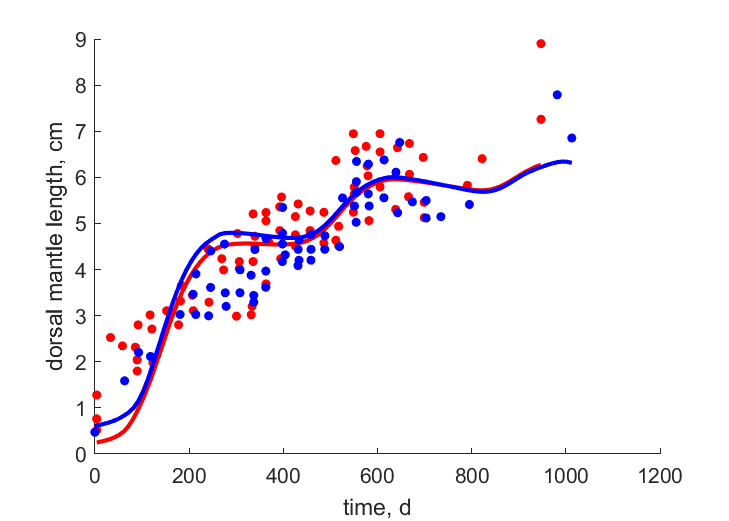 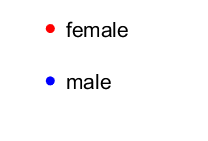 | time | dorsal mantle length | (0.1594) | StorOcam2010 |
| tL_mBA |   | time | dorsal mantle length | (0.1096) | StorOcam2010 |
| tL_fBD | 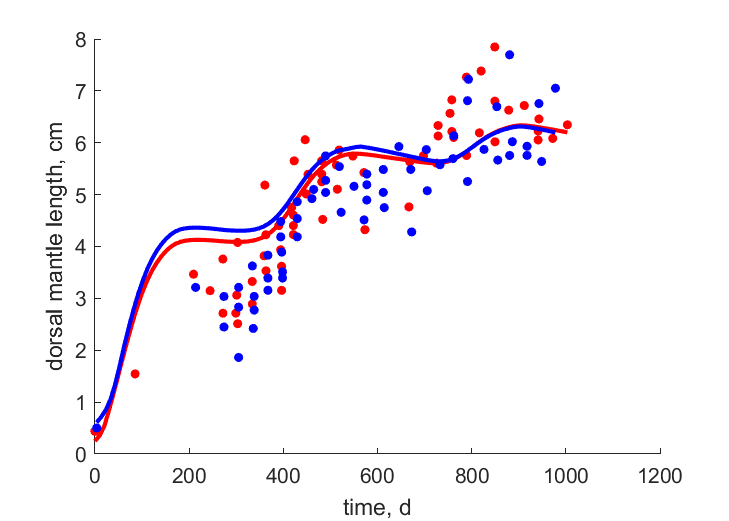 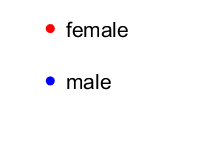 | time | dorsal mantle length | (0.1438) | StorOcam2010 |
| tL_mBD |   | time | dorsal mantle length | (0.1322) | StorOcam2010 |
| tL_fEA | 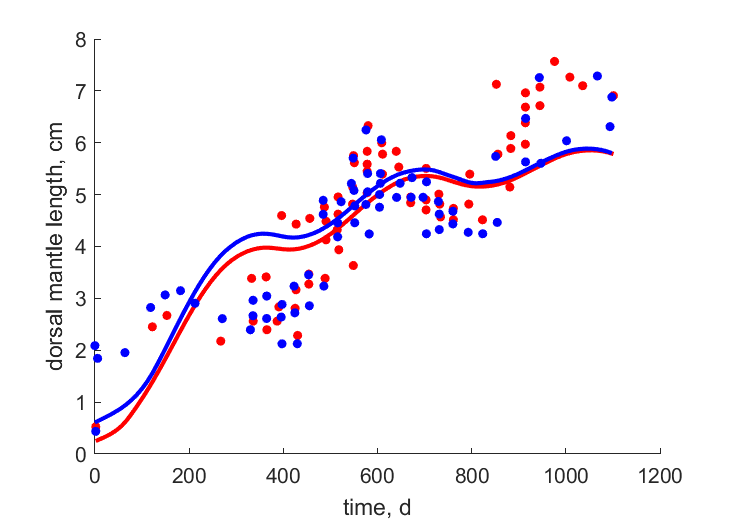 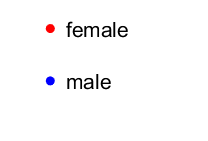 | time | dorsal mantle length | (0.1338) | StorOcam2010 |
| tL_mEA |   | time | dorsal mantle length | (0.1644) | StorOcam2010 |
| tL_fIS | 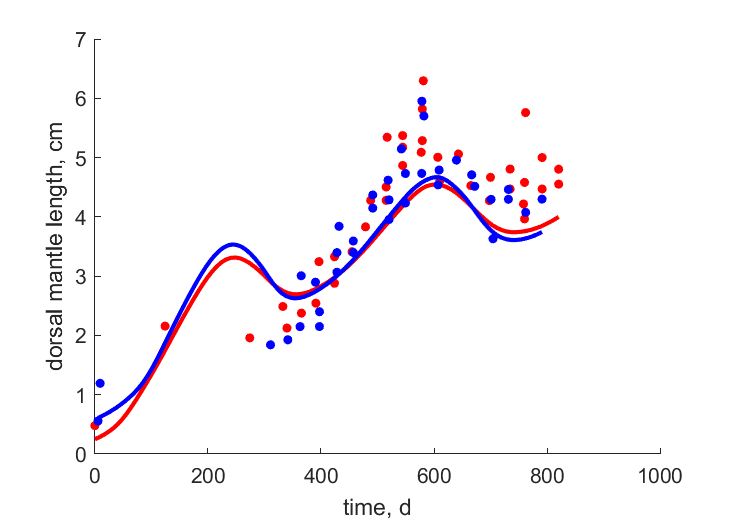 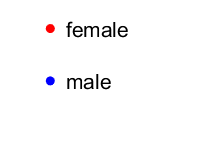 | time | dorsal mantle length | (0.09181) | StorOcam2010 |
| tL_mIS |   | time | dorsal mantle length | (0.09737) | StorOcam2010 |
| LW | 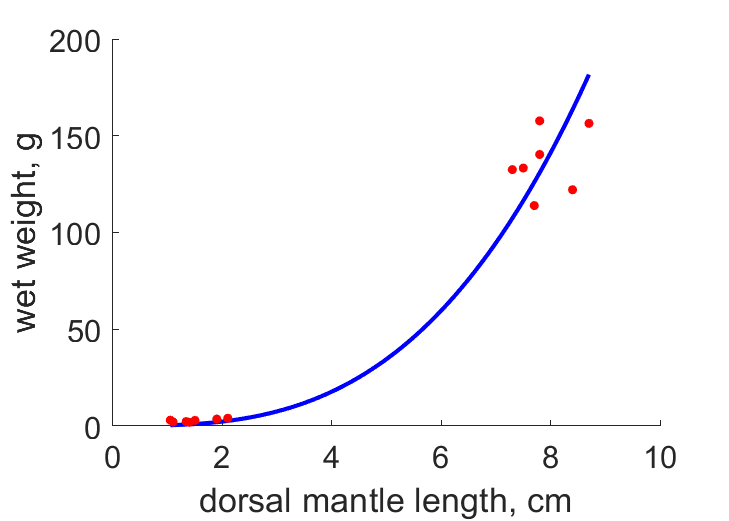 | dorsal mantle length | wet weight | (0.1745) | StorOcam2010 |
Pseudo-data at Tref = 20°C
| Data | Generalised animal | Octopus tehuelchus | Unit | Description |
|---|---|---|---|---|
| v | 0.02 | 0.01914 | cm/d | energy conductance |
| p_M | 18 | 110.3 | J/d.cm^3 | vol-spec som maint |
| k_J | 0.002 | 0.002 | 1/d | maturity maint rate coefficient |
| k | 0.3 | 0.1023 | - | maintenance ratio |
| kap | 0.8 | 0.9835 | - | allocation fraction to soma |
| kap_G | 0.8 | 0.7789 | - | growth efficiency |
| kap_R | 0.95 | 0.95 | - | reproduction efficiency |
Discussion
- Temperature in C for tL_B data for t = 0 at Jan 1: T(t)=13.5+8.5*sin((t+50)*2*pi/365))
- Temperature in C for tL_E and tL_I data for t = 0 at Jan 1: T(t)=14+3*sin((t+15)*2*pi/365)
- In view of shrinking in tL data, local food is assumed to follow a year cycle
- males are assumed to differ from females by {p_Am} only
- length at death is ignorned due to starvation seasonal starvation periods
Facts
- This octopus species might survive a first brood and produce a second one, the year after (Ref: StorOcam2010)
- small eggs with a planktontic larval stage (Ref: Wiki)
- males mature before females (Ref: StorOcam2010)
Bibliography